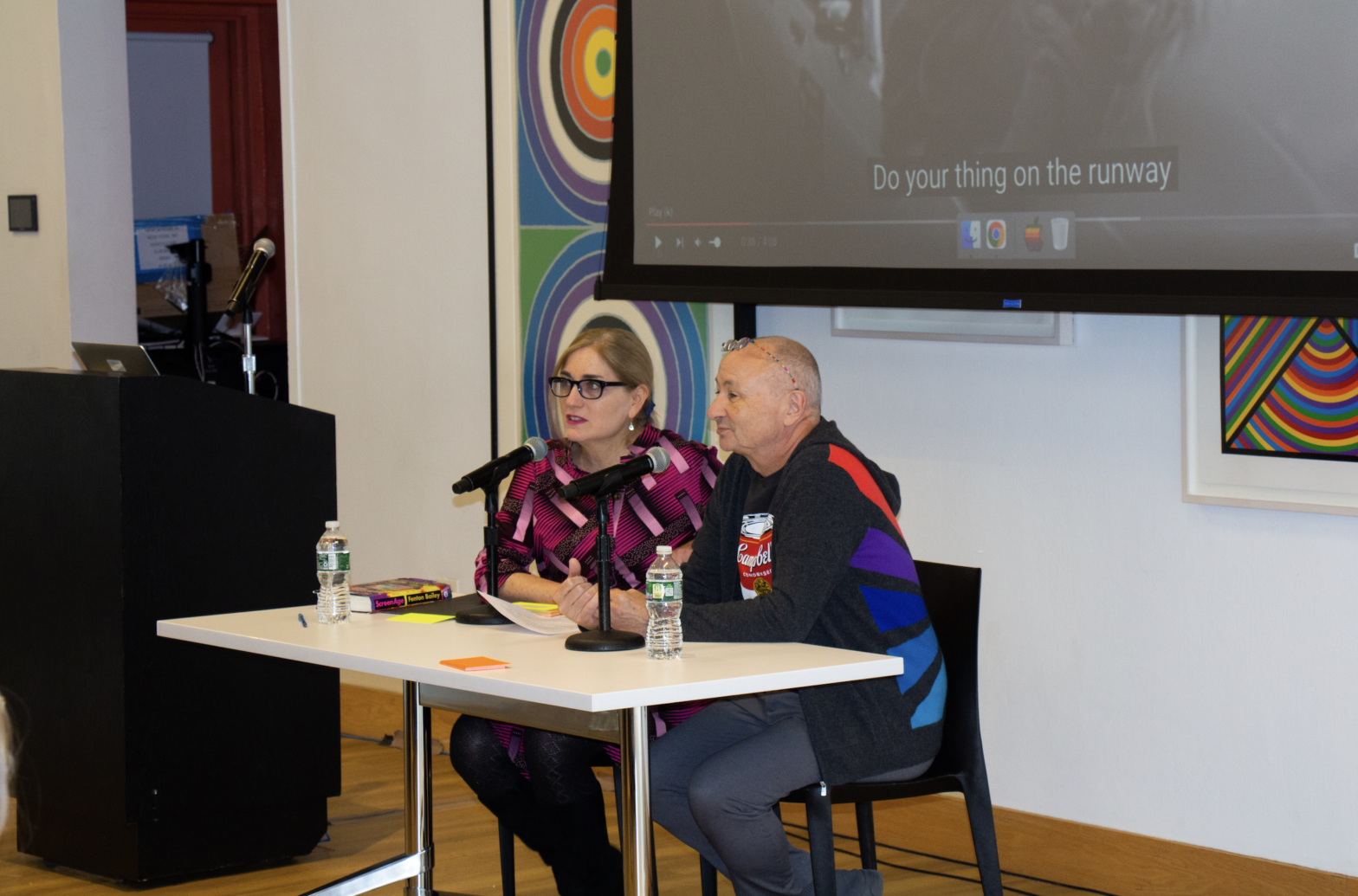On Monday April 24, Fenton Bailey graced New School students with his charismatic presence. During the event he discussed his multifaceted career and his journey to success, which he unfolds through the chapters of his new novel, “Screenage: How TV Shaped our Reality, From Tammy Faye to RuPauls Drag Race.”
The conversation was held on the fifth floor of the Eugene Lang College of Liberal Arts located at 66 W 11th St. Bailey is best known as a producer of the hit reality television series, RuPauls Drag Race, which showcases the art of drag through a challenge-based competition.
Drag Race, which has aired for 15 — going on 16 — seasons, has continued to evolve into inspired spin-offs in 18 countries. When asked about his motivation in starting the iconic series, Bailey said “The drag queens featured on the show are incredibly talented and deserve to be seen no less than whoever’s anchoring the news that night.”
As a young gay boy living in England during the 70s, an experience he described as “grim and bleak,” Bailey found comfort and escape through media and television. He recounted his love for the 1975 film “The Naked Civil Servant,” in which the main character Quentin Crisp proudly and openly expresses his sexuality during the widely conservative era of 1930s and 1940s England. By the end of the film Crisp leaves England and moves to New York City. Bailey, finding inspiration within the character, explains, “being gay myself I was like wow that’s amazing, he walks off and goes to America, that sounds like the place to be, a place where you can reinvent yourself.”
In 1982 Bailey took the leap himself. He moved to the Lower East Side of Manhattan where he pursued his passion for television at New York University’s film school. “It was expensive, and film school hated television and music videos. Honestly the best way to do film school is to just go and make something,” he said. At NYU, Bailey met his business partner and co-producer Randy Barbato and shortly after meeting, the young filmmakers dropped out of the university.
With their new found freedom and the city at their fingertips, the duo started a house disco band called The Fabulous Pop Tarts. They frequented the Pyramid Club, a space that helped define the drag, gay, and punk scene of the East Village in the 1980s, and were quickly thrown into the midst of other creatives trying to make it in New York. It’s through their small success with the Fabulous Pop Tarts that Bailey and Barabato would eventually meet none other than RuPaul.
Bailey recounted how in 1988 the band traveled to Atlanta, Georgia, for a performance. At a houseparty after their show, they cosmically ended up meeting RuPaul. After getting to know him, Bailey knew he had found a “star.”
“We hitched our wagon to his star, there was no question he was just so funny and good.” In 1991 the Fabulous Pop Tarts fizzled out and the pair began managing RuPaul. In the same year they founded their own production company, World Of Wonder.
World of Wonder began as a true grassroots passion project, where they had the freedom to create their ideas on their own terms. Bailey chuckled while sharing that “their first purchase was a fax machine, and it was a big deal.” One of the earliest pieces to come out of World of Wonder was RuPaul’s iconic “Supermodel” music video, which pushed the company off the ground.
Once the incredibly camp, Rupaul’s Drag Race premiered in 2009, Bailey’s success skyrocketed and the show received 70 Emmy award nominations, and garnered 27 Emmy awards. What Bailey makes exceptionally clear in both his writing and his words, is his love for television and his admiration for drag. “You’re born naked and the rest is drag,” he said.
“America is drag culture. Look at Vegas, even the buildings on the strip are in drag.” To him, drag is everywhere, and with Drag Race reaching the homes of so many through cable and streaming the availability for queer acceptance is continuing to grow and evolve. “The radical right are like bullies at school who pick on queens. They think they’re weak targets, and that no one will stand up for them but I think they’re wrong and I think they picked the wrong target,” Bailey said.
When asked if Bailey could’ve ever predicted the cultural evolution of Drag Race, he responded “There’s never been this idea that drag is a certain thing, other then charisma, uniqueness, nerve, and talent; drag is art and perfect for television.” Bailey’s contribution to the media is considered revolutionary, and his work is seen as something that continues to help break boundaries.
To learn more about the miraculous life of Fenton Bailey, and the shows that helped shape pop culture as we know it, check out his novel “Screenage: How TV Shaped Our Reality, From Tammy Faye to RuPaul’s Drag Race.”








Leave a Reply